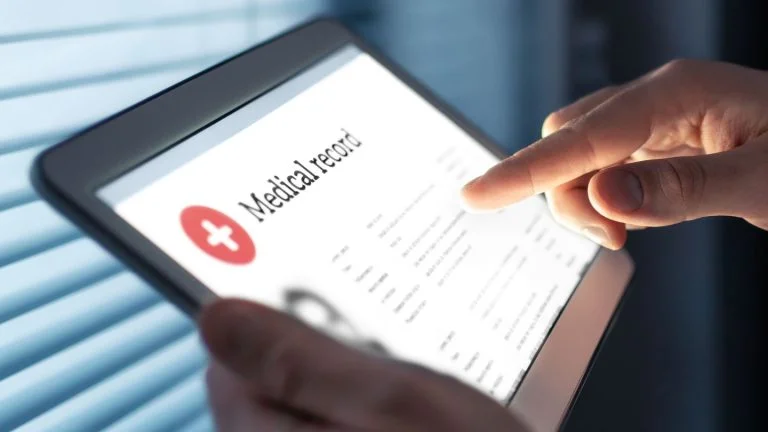How Medical Call Centers Improve Care Coordination Across Healthcare Systems for Better Patient Outcomes

Medical call centers improve care coordination across healthcare systems by centralizing patient communication, scheduling appointments, and managing follow-ups. Specifically, how medical call centers improve care coordination across healthcare systems streamlines the flow of medical information, helping healthcare providers deliver timely and effective care. This blog will delve into these functions and their impact on patient outcomes and healthcare efficiency.
Key Takeaways
- Medical call centers enhance care coordination by serving as centralized communication hubs, ensuring timely patient inquiries and effective management of appointments and follow-ups.
- Utilization of advanced technologies, including AI and CRM systems, improves personalized patient communication and engagement, leading to better satisfaction and health outcomes.
- Integration with Electronic Health Records (EHR) allows call centers to streamline administrative tasks and provides real-time access to patient information, enhancing care quality and minimizing errors.
The Role of Medical Call Centers in Care Coordination
Medical call centers serve as the nerve center of healthcare systems, ensuring that patient care is coordinated efficiently and effectively. They act as vital communication hubs, managing a multitude of patient calls and serving as the central point for questions and health information. This centralization ensures that information flows seamlessly between patients and healthcare providers, reducing the barriers that often impede effective care coordination and enhancing center services. In addition to general patient communication, medical call centers can offer specialized clinical support through a nurse triage service, where licensed nurses assess symptoms, prioritize urgent cases, and guide patients to appropriate care.
Timely and efficient communication is the cornerstone of effective care coordination measures in care delivery. Medical call centers excel in this area by ensuring that patient inquiries are addressed promptly and that follow-up appointments are scheduled without delay. This not only enhances patient engagement but also positively impacts patient outcomes by ensuring that coordinated patient care plans are adhered to and health issues are addressed promptly.
Another critical role of healthcare call centers is organizing patient appointments and managing follow-ups. This might seem like a routine task, but it’s essential for maintaining continuity of care. By handling these administrative duties, call centers allow healthcare providers to focus more on patient care, thus enhancing the overall healthcare delivery system.
Various communication systems integrated within call centers ensure precise information flow. This reduces miscommunication and ensures that all parties involved in a patient’s care are on the same page. Such integration is vital for delivering effective communication, patient-centered care, and enhancing patient safety.
As we delve deeper into the functions of medical call centers, it becomes clear that their impact extends far beyond mere administrative support. They are instrumental in enhancing patient communication, which is the next aspect we will explore.
Enhancing Patient Communication
Effective patient communication is the bedrock of high-quality healthcare. Medical call centers utilize advanced technologies like CRM systems to enhance service quality and ensure personalized patient interactions. These technologies allow call centers to track patient histories, preferences, and needs, tailoring interactions to meet individual expectations.
Emerging technologies such as AI, chatbots, and intelligent voice assistants are revolutionizing patient interactions by:
- Streamlining communication
- Making it easier for patients to get the information they need quickly and efficiently
- Promptly addressing patient inquiries significantly improves satisfaction and trust in the healthcare system.
Follow-up phone calls are another critical component of effective patient communication. When healthcare organizations conduct follow-up calls, they enhance patient satisfaction by addressing concerns, providing educational information, and ensuring that patients understand their treatment plans. This proactive approach not only improves health outcomes but also reduces healthcare costs by preventing complications and readmissions.
Promoting multilingual services and utilizing technologies for clear communication enhances patient trust and satisfaction. This is especially important for diverse patient populations who might face language barriers in accessing healthcare services. Offering services in multiple languages ensures all patients receive the care they need, regardless of their linguistic background.
Optimizing existing systems and understanding patient journey mapping helps identify pain points in the communication process, leading to continuous improvements. This ensures that patient interactions are not only effective but also contribute to a consistent patient experience, enhancing the overall patient experience and improving patient outcomes.
Streamlining Administrative Tasks
Medical call centers play a crucial role in streamlining administrative tasks, significantly alleviating the workload on healthcare staff and allowing them to focus more on patient care. Handling routine tasks like appointment scheduling, patient inquiries, and follow-ups allows healthcare providers to focus more on clinical care.
Outsourcing non-clinical administrative functions like scheduling and records management can lead to several benefits:
- Significant reduction in operational burdens and costs.
- Improved efficiency in healthcare practices.
- More resources allocated toward enhancing patient care.
- Reduced healthcare costs by sending automated reminders to patients and reducing no-show rates.
EHR integration is another critical aspect of streamlining administrative tasks. By integrating EHR systems, call centers can minimize paper usage and automate various administrative tasks, which in turn decreases operating costs and enhances efficiency. This integration allows medical staff to focus more on patient care rather than administrative duties within health systems.
Healthcare call centers also manage bookings and insurance tasks efficiently, helping doctors concentrate on patient care. This not only improves the overall efficiency of healthcare delivery but also enhances patient satisfaction by ensuring that their administrative needs are met promptly and accurately in the healthcare centers.
As we move forward, it’s essential to understand how EHR integration plays a pivotal role in care coordination and patient safety, which we will explore next.
Integration with Electronic Health Records (EHR)

Integration with Electronic Health Records (EHR) is a game-changer for medical call centers, providing a holistic view of patient records and real-time access to essential data. This integration significantly improves care coordination by ensuring that all relevant patient information is readily available to healthcare providers, reducing the chances of medical errors.
Real-time access to EHRs reduces patient wait times and optimizes call center efficiency by enabling quick access to vital patient information and patient access. This ensures that patient inquiries are addressed promptly, enhancing the overall patient experience and satisfaction.
Administrative tasks such as prescription refills and referral processes are streamlined through EHR systems. This allows call center agents to manage operations more effectively and ensures that patients receive timely and accurate information about their care.
EHR integration also enhances patient safety by providing real-time insights into critical patient details such as allergies and medications. This ensures that healthcare providers can make informed decisions, ultimately leading to better health outcomes for patients.
Personalized patient engagement is the next frontier in improving patient care, and it’s an area where medical call centers excel. Let’s explore how they achieve this.
Personalized Patient Engagement
Personalized patient engagement is essential for delivering high-quality, patient-centered care. Medical call centers utilize data analytics to tailor patient interactions based on historical health information. This approach ensures that each patient receives care that is customized to their specific needs and preferences, enhancing patient satisfaction and engagement.
Data analytics also transforms patient support by refining customer service and improving follow-ups. By analyzing patient data, call centers can identify patterns and trends, allowing them to provide more targeted and effective support. This not only improves patient outcomes but also fosters stronger patient relationships.
The integration of AI in call centers plays a significant role in:
- Developing customized care plans based on individual health data.
- Offering continuous patient support through chatbots and virtual assistants.
- Providing 24/7 assistance to ensure patients have access to the information they need at all times.
AI also automates health reminders, follow-up communications, and health education, promoting patient engagement. This proactive approach ensures that patients stay informed about their health and adhere to their treatment plans, ultimately leading to better health outcomes.
One-size-fits-all solutions can undermine patient satisfaction and engagement. Therefore, integrating EHR allows call center agents to access patient data instantly, enhancing service personalization. This ensures that each interaction is meaningful and tailored to the patient’s unique needs.
Supporting diverse patient populations is another critical aspect of personalized patient engagement. Let’s delve into how medical call centers cater to these populations.
Supporting Diverse Patient Populations
Supporting diverse patient populations is essential for ensuring equitable access to healthcare. Medical call centers play a crucial role in this by offering multilingual clinical support, which helps cater to patients from different linguistic backgrounds. This enhances accessibility and ensures that all patients receive the care they need, regardless of their language.
AI can also help bridge health equity gaps by offering multilingual support to underserved populations. This ensures that even marginalized groups have access to accurate health information and support, improving their overall health outcomes.
Ensuring equitable access to healthcare is vital for improving health outcomes across diverse patient populations. Medical call centers achieve this by implementing initiatives that enhance healthcare accessibility for marginalized and diverse patient groups.
By focusing on the unique needs of diverse patient populations, call centers ensure that every patient receives personalized, high-quality care. This not only improves patient satisfaction but also fosters trust and loyalty, enhancing customer satisfaction.
Reducing readmissions and improving health outcomes is another critical area where medical call centers make a significant impact. Let’s explore this further.
Reducing Readmissions and Improving Health Outcomes

Reducing readmissions and improving health outcomes are primary goals of medical call centers. Timely follow-ups by call centers enhance care coordination and monitor patient recovery to address any complications early on. This proactive approach can significantly reduce the likelihood of readmissions, especially for older adults.
Proactive outreach helps identify emerging patient issues early, decreasing the likelihood of readmission. By maintaining consistent communication with patients, call centers ensure that any potential health issues are addressed promptly, preventing complications and improving patient care management and patient outcomes.
AI-driven insights can predict patient health trends, enabling effective early interventions. By analyzing data from remote patient monitoring, healthcare providers can identify early warning signs of chronic conditions and take preventive measures.
Follow-up calls not only improve patient engagement but also positively impact family members’ perceptions of healthcare services, as they often lead to valuable patient feedback and enhance patient interaction, meeting patient expectations. This fosters a sense of trust and satisfaction, encouraging patients to adhere to their treatment plans and engage actively in their healthcare journey.
While the benefits are clear, managing call center operations comes with its own set of challenges. Let’s delve into how these challenges can be overcome.
Overcoming Challenges in Call Center Operations
Healthcare call centers face several challenges, including high call volumes during public health crises, which can lead to agent burnout and decreased service quality. Healthcare organizations should focus on strategic clinical staff training and effective management practices to address healthcare call center outsourcing and improve their healthcare call center operations.
Patient privacy and system integration issues can also hinder call center operations. Implementing secure systems, strict access controls, and regular risk assessments helps protect patient privacy and ensures smooth operations.
Inadequate integration of systems can lead to delays and miscommunication. Using technology such as cloud-based systems can enhance flexibility and improve service responses in call centers.
Monitoring key performance metrics ensures that areas for improvement in call center operations are identified and addressed promptly through continuous monitoring. Adherence to best practices is essential for overcoming challenges and maintaining high service quality, ultimately enhancing operational efficiency.
As we look to the future, emerging technologies will continue to shape the landscape of medical terminology call centers. Let’s explore these trends next.
Future Trends in Medical Call Center Technology
The future of medical call centers is set to be transformed by emerging technologies. AI and chatbots are poised to enhance call center operations by automating routine tasks, improving scalability, and providing 24/7 support. These technologies will ensure that patient inquiries are addressed promptly, enhancing overall patient satisfaction.
Virtual health assistants are revolutionizing patient interactions by providing continuous support and effectively triaging patient concerns among different healthcare professionals. This ensures that patients receive timely and accurate information, improving their overall healthcare experience.
Emerging technologies will lead to more proactive, data-driven, and patient-focused care coordination. By utilizing advanced data analytics and AI, call centers can predict patient needs and provide personalized care plans, improving health outcomes.
Incorporating advanced workforce management software technologies can improve call center operations and enhance patient care. These tools will ensure that call centers operate efficiently, reducing wait times and improving service quality.
As we embrace these future trends, it’s essential to adhere to best practices for effective call center management. Let’s explore these best practices next.
Best Practices for Effective Call Center Management
Effective call center management is crucial for delivering high-quality patient care. Regular and structured comprehensive training programs are essential to keep call center staff updated on policies, procedures, and technology. This ensures that staff can handle patient inquiries efficiently and accurately.
Key priorities for call center staff include:
- Empathetic communication significantly influences patient satisfaction.
- Training on privacy laws to ensure patient information is handled securely.
- Training on soft skills to handle patient information sensitively.
Clear emergency call protocols should be defined to ensure proper handling and escalation of urgent situations. Utilizing advanced virtual contact center software can enhance operational performance and reduce wait times.
A streamlined call routing system helps in directing calls efficiently, particularly during after-hours. Utilizing AI and automation can help manage routine inquiries more efficiently, ensuring that patients receive timely and accurate information.
Read more: How Medical Call Centers Track Patient Medication Schedules: Effective Strategies
The Future of Care Coordination with Medical Call Centers
Medical call centers are revolutionizing healthcare systems by improving care coordination, patient communication, and administrative efficiency. Their ability to integrate with EHR systems, provide personalized support, and reduce readmissions highlights their critical role in delivering high-quality care. As technology continues to evolve, innovations like AI and virtual health assistants will further enhance their effectiveness, ensuring patients receive prompt, accurate, and compassionate support.
At Sequence Health, we are proud to be at the forefront of this transformation. By offering advanced medical call center services, we empower healthcare providers to streamline operations, enhance patient experiences, and focus on exceptional care delivery. Partner with us to optimize patient engagement and achieve better health outcomes through our comprehensive solutions. We offer medical health website design to enhance your online presence, impactful educational videos to inform and engage patients, seamless healthcare CRM/EMR integration to streamline operations, and strategic advertising to grow your reach. Contact us today!
Frequently Asked Questions
How do medical call centers enhance patient communication?
Medical call centers enhance patient communication by leveraging advanced technologies such as CRM systems and AI-driven tools to facilitate personalized interactions. By conducting follow-up calls and providing educational information, they ensure that patient concerns are addressed, ultimately improving satisfaction and trust.
What role do medical call centers play in care coordination?
Medical call centers serve as essential communication hubs that enhance care coordination by managing patient inquiries, organizing appointments, and facilitating follow-ups. This streamlined communication improves patient outcomes by ensuring accurate information flow.
How do medical call centers support diverse patient populations?
Medical call centers support diverse patient populations by providing multilingual services and leveraging AI technology to ensure equitable access to healthcare. This approach enhances accessibility for underserved and marginalized groups, allowing all patients to receive the care they need.
What are the future trends in medical call center technology?
Future trends in medical call center technology will be dominated by AI, chatbots, and virtual health assistants, enhancing automation and patient support. This shift promises more proactive, data-driven, and patient-centered care coordination.
What are some best practices for effective call center management?
For effective call center management, prioritize regular training on policies and empathetic communication while implementing advanced software tools to improve performance and reduce wait times. These practices ensure a knowledgeable team capable of handling calls efficiently and with care.





